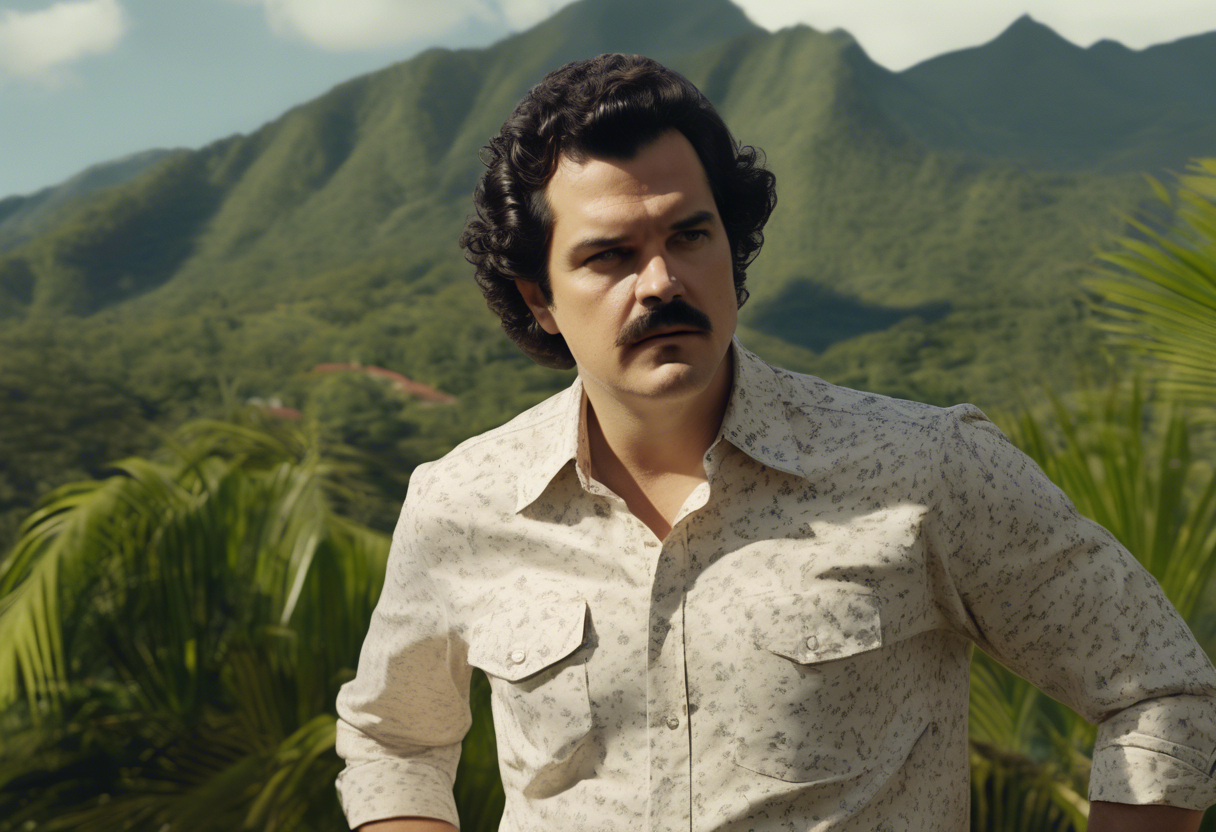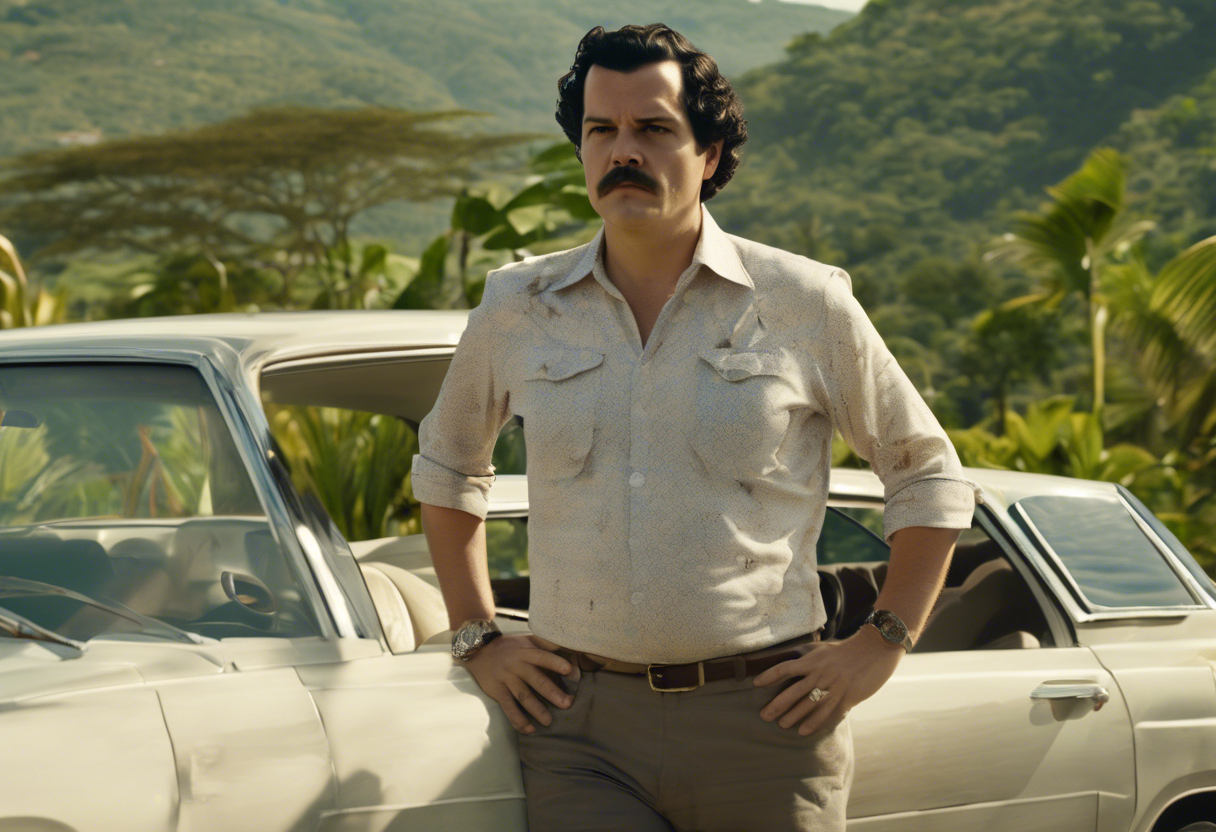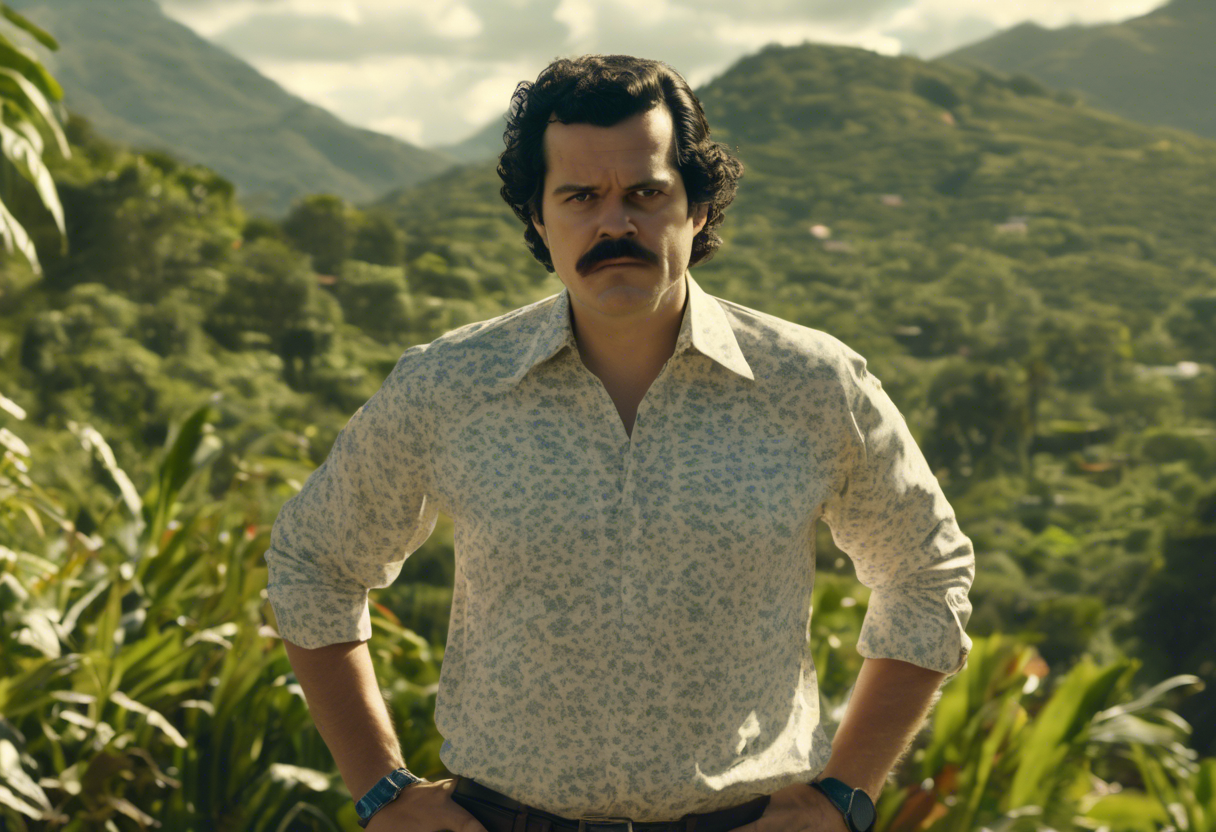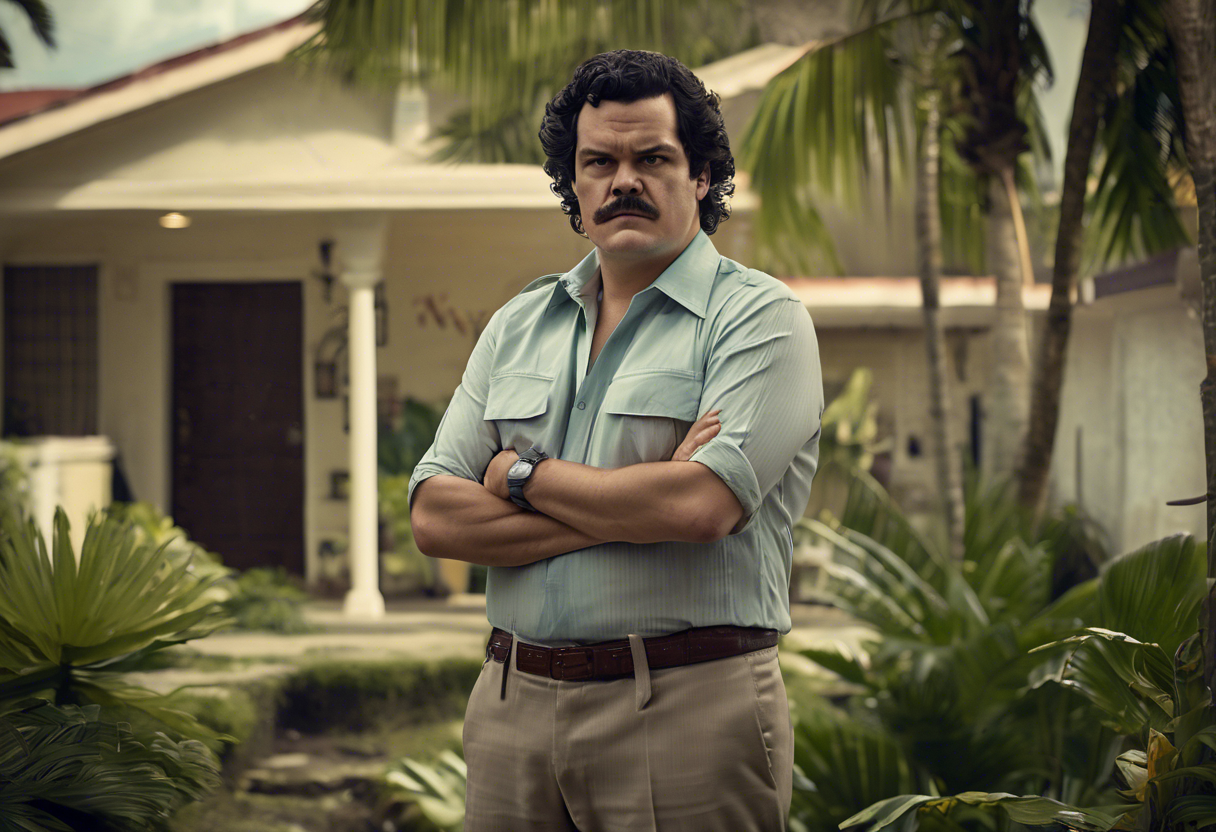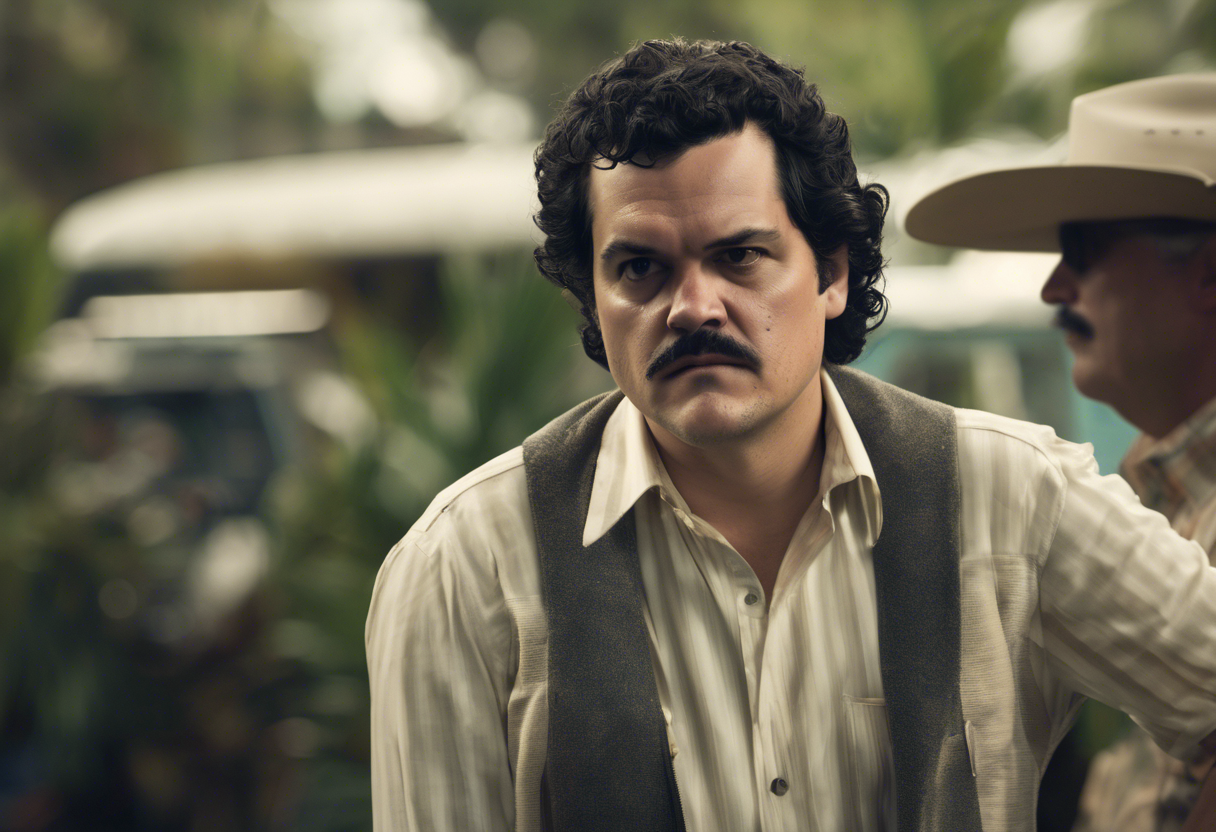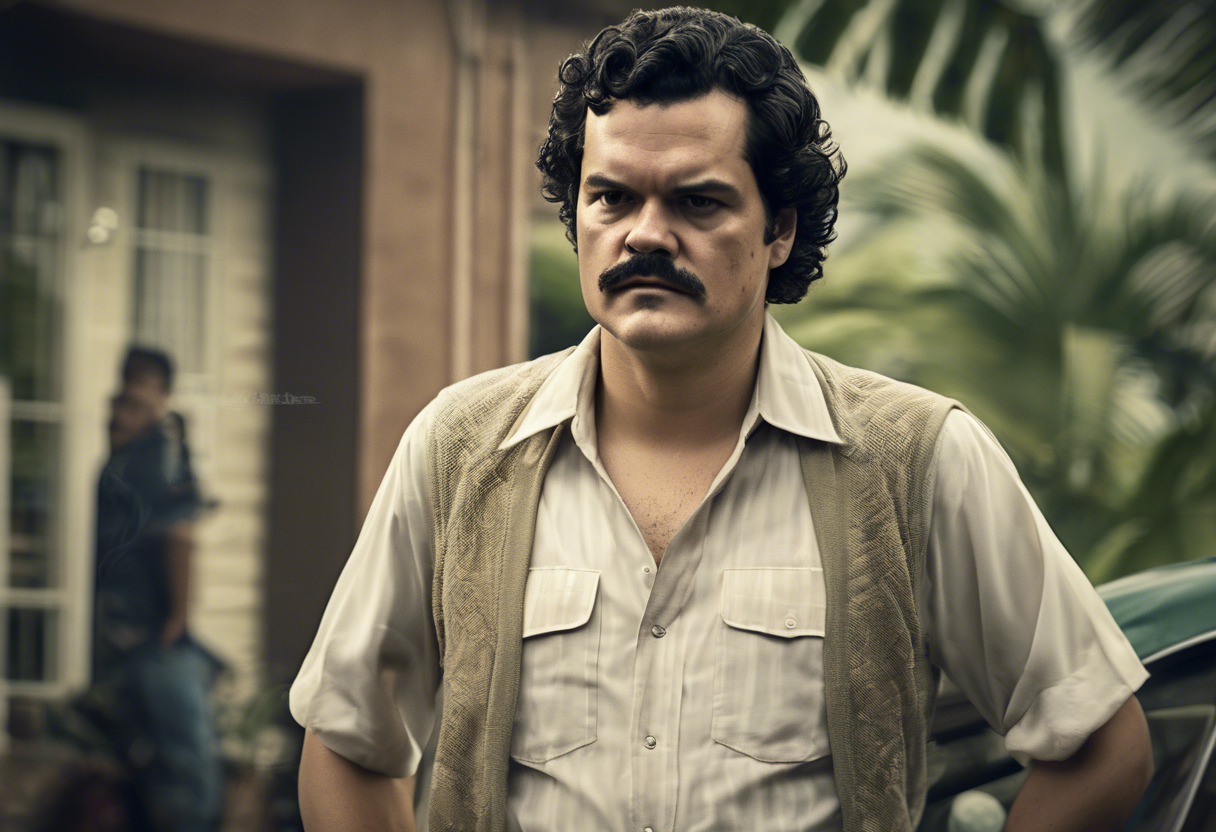Contents
Pablo Escobar in Netflix’s "Narcos": A Comprehensive Analysis
Introduction
Pablo Escobar, portrayed by Wagner Moura in the Netflix series "Narcos," is one of the most infamous figures in the history of drug trafficking. Born in Medellín, Colombia, Escobar rose from humble beginnings to become the leader of the Medellín Cartel, earning the title of the "King of Cocaine" and amassing a fortune that made him one of the richest men in the world [1][4].
Escobar’s character in "Narcos" is significant not only because of his historical impact but also due to the complex and nuanced portrayal that challenges traditional crime-genre conventions. The series delves into Escobar’s backstory, revealing a character driven by both ambition and a desire to overcome social inequalities, making him a compelling and relatable figure despite his despicable actions [3].
Role in the Series
The narrative of "Narcos" seasons 1 and 2 is largely centered around Pablo Escobar’s rise to power and his subsequent downfall. The series chronicles his early days as a small-time smuggler to his ascension as the leader of the Medellín Cartel. Key events include his involvement in the cocaine trade, his political ambitions, and his violent confrontations with law enforcement and rival cartels.
Escobar’s relationships with other characters are pivotal to the story. His interactions with DEA agents Steve Murphy and Javier Peña, as well as his dealings with Colombian politicians and other cartel members, highlight his cunning and ruthless nature. The series also explores his personal life, including his family and his efforts to protect them, which adds a layer of humanity to his character [4][5].
Major decisions made by Escobar include his choice to enter politics, which was a strategic move to gain legitimacy and protection for his criminal activities. However, this move also exposed him to greater scrutiny and ultimately led to his public humiliation when the Minister of Justice revealed his mugshot, marking a turning point in his public image [3].
Character Analysis
Pablo Escobar’s character is multifaceted, combining elements of charisma, intelligence, and brutality. His motivations are rooted in a desire for power and wealth, but also in a need to overcome the social and economic hardships of his upbringing. This duality makes him a complex figure, both admirable for his ambition and reprehensible for his methods.
One of the defining traits of Escobar is his boldness and ambition. He is depicted as someone who could have achieved great things if not for his moral depravity and narcissism. His actions, such as storming military strongholds and defying law enforcement, demonstrate his fearlessness and strategic thinking [5].
However, Escobar’s flaws are equally significant. His willingness to use violence and intimidation, including targeting the families of his enemies, reveals a cowardly and ruthless side. This dichotomy between his bold actions and cowardly tactics adds depth to his character, making him more than just a one-dimensional villain [5].
Throughout the series, Escobar’s character evolves as he faces increasing pressure from law enforcement and internal conflicts within the cartel. His relationships with his family and associates become more strained, and his actions become more desperate, leading to a tragic but inevitable conclusion.
Themes and Symbolism
Pablo Escobar embodies several themes that are central to the narrative of "Narcos." One of the primary themes is the war on drugs and its complexities. Escobar’s rise and fall serve as a case study for the failures and challenges of this war, highlighting the corruption, violence, and social inequalities that fuel the drug trade.
Another significant theme is the American Dream and its elusiveness. Escobar’s journey from poverty to wealth, albeit through illicit means, reflects a twisted version of the American Dream. This theme is further complicated by the contrast between Escobar’s success and the moral and social costs of his actions [3].
Escobar also symbolizes the impact of social and economic inequality. His backstory, which includes his humble origins and his desire to improve the lives of the poor in Medellín, underscores the systemic issues that drive individuals into criminal activities. This portrayal humanizes Escobar and challenges the audience to consider the broader societal factors that contribute to crime [3].
Cultural Impact
Pablo Escobar’s character has had a significant cultural impact, both within the context of "Narcos" and beyond. The series itself has been praised for its realistic and nuanced portrayal of Escobar, which has contributed to a broader understanding of the complexities of the drug trade and its historical context.
The character of Escobar has also been the subject of various adaptations and spin-offs. His legend has inspired numerous books, films, and documentaries, each offering different perspectives on his life and legacy. In popular culture, Escobar has become a symbol of both the allure and the danger of the drug trade, often referenced in music, film, and literature [1][4].
Critical Reception
The portrayal of Pablo Escobar in "Narcos" has received mixed reviews from critics and audiences. Some have praised the series for its detailed and accurate depiction of Escobar’s life, while others have criticized it for storytelling errors and the use of voiceover narration [2].
Critics have noted that Wagner Moura’s performance brings depth and complexity to the character, making Escobar both compelling and relatable. However, some have argued that the series sometimes glamorizes Escobar’s actions, which can be problematic given the real-life impact of his crimes [5].
Audiences have generally praised the series for its engaging narrative and strong performances, but there has been some controversy over the accuracy of certain events and the portrayal of real-life figures. Despite these criticisms, the series has been widely acclaimed for its contribution to the crime genre and its thought-provoking exploration of complex themes [3][5].
Legacy
Pablo Escobar’s legacy in "Narcos" is multifaceted and enduring. He remains one of the most fascinating and complex characters in recent television history, embodying both the allure and the horror of the drug trade.
His character has inspired other works and character archetypes, often serving as a benchmark for portrayals of powerful and ruthless figures. The series has also contributed to ongoing discussions about the war on drugs, corruption, and social inequality, ensuring that Escobar’s story remains relevant in contemporary discourse.
In conclusion, Pablo Escobar in "Narcos" is a character of immense complexity and significance, offering a nuanced exploration of the human condition through the lens of one of history’s most infamous figures.
References
- https://near-pure-evil.fandom.com/wiki/Pablo_Escobar_(Narcos)
- https://www.pajiba.com/tv_reviews/review-netflixs-narcos-and-the-insufferable-voiceover-narration.php
- https://iu.pressbooks.pub/perspectives2/chapter/narcos-netlifxs-complex-portrayal-of-the-war-on-drugs/
- https://en.wikipedia.org/wiki/Narcos
- https://forum.quartertothree.com/t/narcos-netflix-and-pablo-escobar/77133

